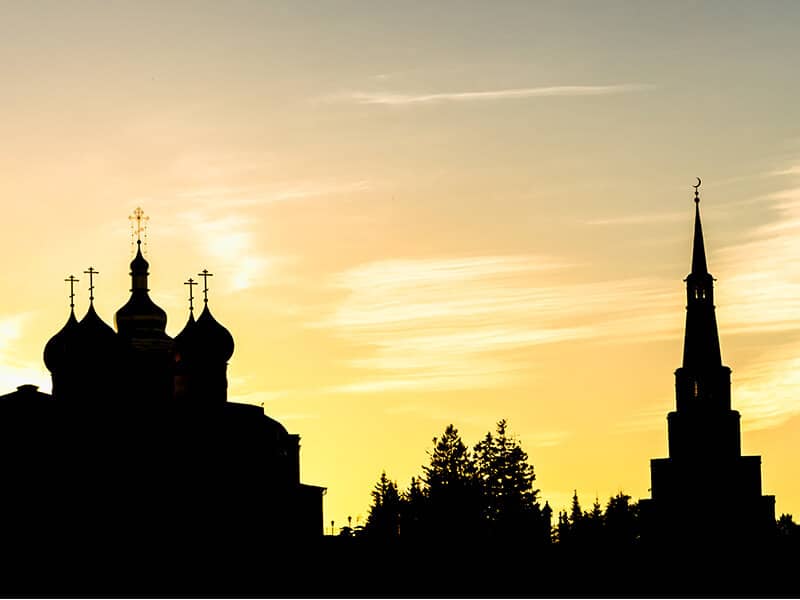Excerpted with permission from "On Being a Muslim," courtesy of Oneworld Publications.
There is an exciting and challenging wind of relevance blowing through the world of Islam. Numerous Muslims, especially among the young, are keen to know how Islam relates to our here and now.
 |
 |
 |
 |
| |||
 |
The more strident, angry and fanatical displays of this revival receive a great deal of attention. This should not, however, detract from the genuineness of the "new Muslim." This Muslim is new in the sense that she is adamant that a stagnant and fossilized Islam confined to a set of rituals that are mere motions must make way for a personally meaningful and socially relevant Islam. Those of us who are deeply committed to a human and compassionate expression of our faith cannot allow ourselves to be swamped by the noise of religious obscurantism and the equally destructive caricaturing in some sections of the media of the whole of Islam as a threat to civilized values.
Much of the emphasis on contemporary works on Islam by committed Muslims has hitherto been on the more obviously ideological aspects of Islam. These works usually cater to those who simply see Islam as an alternative to the universal colonization of consciousness through a process of relentless McDonaldization, the accompanying destruction of local cultures and economic exploitation.
Two other factors have contributed to the sharp, rather angry and often dehumanizing image of Islam. These are the suffering endured by Muslims in several parts of the world such as in Palestine, Chechnya, the Balkans, and Kashmir, and a simplistic recourse to our religious heritage as both our safe haven and the mother of all weapons.
I believe there is a path between dehumanizing fundamentalism and fossilized traditionalism.
This is a path of a radical Islam committed to social justice, to individual liberty and the quest for the Transcendent who is beyond all institutional religious and dogmatic construction; an Islam that challenges us to examine our faith in personally and socially relevant terms. This Islam, I believe, provides a set of personal responses in an increasingly materialistic society where most people are living, and very many dying, lives of quiet desperation with a frightening sense of alienation from themselves, others and Allah. Muslims can make an effective contribution alongside those of other religious convictions the creation of a world wherein it is safe to be human.
Our personal responses to these questions are, in the final analysis, the only barometer of our commitment to a holistic Islam.
It must, however, be emphasized that this re-examination or reviewing of our faith in personal terms cannot be done in isolation from the struggle to work against unjust socio-economic systems. Islam was never nurtured in a protective hothouse; the history of early Islam was a continuous struggle of socio-political engagement, introspection, revelation, and more engagement.
And so the bottom line is a comprehensive commitment to personal growth through involvement alongside others in a struggle to create a more humane and just world where people are truly free to make Allah the center of their lives..
While all creative work is autobiographical, this work is unashamedly so; it deals with the struggle to be a Muslim in this day and age, but it essentially reflects my struggle and those with whom I have interacted. I have been inspired by the primary sources of Muslim religious life, the Qur'an and the exmple of the Prophet Muhammad (Peace and blessings be upon him). I have simultaneously, and again unashamedly, utilized these to justify deeply cherished beliefs.
The struggle to live as a child of the times in a liberated society and to be committed to Islam is incredibly difficult if you take your theological heritage seriously. Every answer seems to be accompanied by a multitude of questions. I believe that the questions and perspectives experienced here can by useful for Muslims elsewhere, even if only in opening up the possibilities for critical questioning within the context of remaining faithful.

